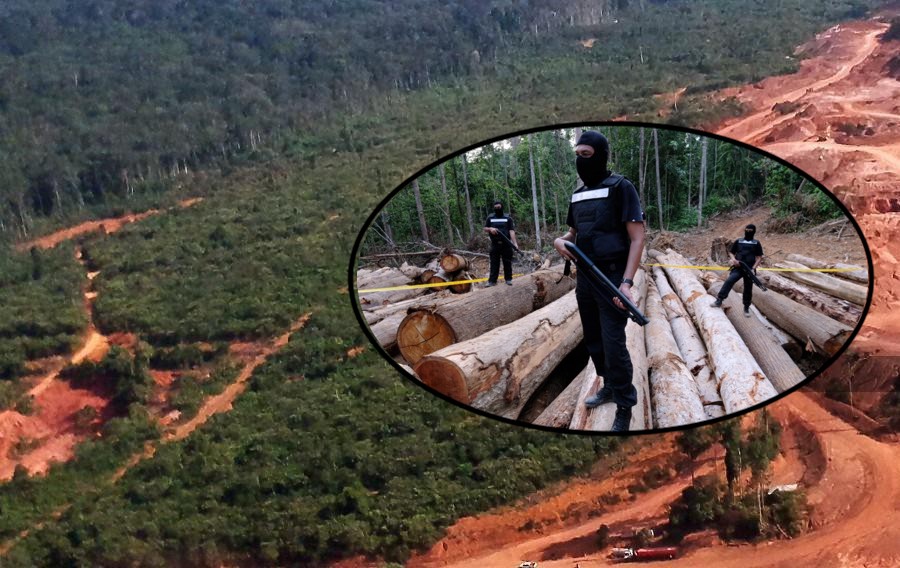As widely observed, the present ‘Covid stimulus’ budget, replete with record borrowing and unrealistic income projections, represents an old-style raid on the public purse on an unprecedented scale.
Only a modest section of the extra borrowing will be allocated to help the population with Covid relief, whilst bloated and non-transparent ‘development’ budgets and such bodies as the newly restored propaganda unit JASA are designed to richly reward cronies and influential entities who are propping up the government, and to provide jobs for party workers.
Meanwhile, the moment the ‘moralists’ from PAS grabbed hold of the environment and agriculture portfolios all attempts at retaining what is left of the country’s once unparalleled natural heritage have been elbowed aside in favour of chopping down remaining timber and rolling out yet more failing palm oil plantations.
For example, Sarawak Report revealed in March how the floundering Tabung Haji Plantations, whilst seeking to offload its loss making plantations elsewhere (Sarawak has agreed to buy back huge tracts) has continued to invest in a costly new venture to plant yet more of the uneconomical crop in Pahang.
The project has involved the stealthy de-gazetting by the State Government of over 12,000 hectares of remaining forest reserve regarded as a tragedy by environmental campaigners who have obtained documents that reveal the landowner and ‘project proponent’ behind the enterprise, namely the company Deru Semangat Sdn Bhd, is 45% owned by none other than the brother of the Sultan of Pahang, the present Agong.
The remainder of the company is owned by Tabung Haji Plantations itself. However, the government controlled pilgrimage fund has specifically only been granted the plantation rights to the land – AFTER the super-valuable timber has been stripped away.
So, who got the logging licences for that?
In the light of the clear royal connection to this project Sarawak Report has asked for proper transparency from the state government as to whom has benefitted from those timber licences, which is plainly a matter of public interest.
Despite the obvious need for accountability, no answers have been provided so far:
See our original story here.
This baffling investment at a time of palm oil glut raises the obvious concern that yet more of the savings made by Malaysia’s would be pilgrims are being ploughed into loss-making projects to enable cronies to profit out of logging the land.
It is in keeping with the short-sighted, selfish and greedy policy making behind the present budget and Malaysians are only too aware this will not be the first time that Tabung Haji and other government controlled funds and companies have been abused in just this way.
A more enlightened approach to benefit Malaysia’s wider population and future opportunities would be to tap into the global climate change agenda and to set out the country’s ideal potential in terms of green initiatives and reforestation projects.
Restoring de-graded lands, returning profits and jobs to local people (rather than the vast agri-businesses that presently employ millions of immigrants in the country) would make such projects eligible for green investment by a growing army of potential foreign partners. And it would rescue Malaysia’s now gravely threatened wildlife and natural heritage.
However, as the present budget proposals demonstrate, the short-sighted and greedy bigots who are presently grabbing all that is left in Malaysia neither see nor care about such opportunities for their people. They are allowing nimbler competitors to attract the growing global green investment to other countries instead.

